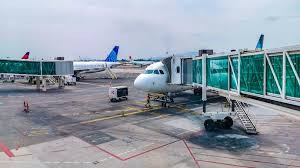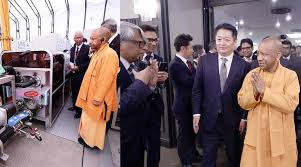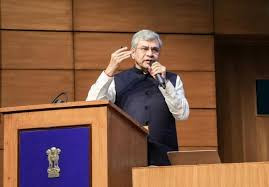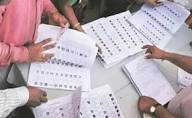China Ready to Supply Fertilizer, Rare-Earths and Tunnel-Boring Machines to India
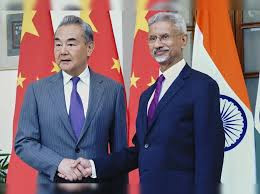
IIE DIGITAL DESK : The notable shift in diplomatic and economic positioning, China has signaled its willingness to resume and bolster exports of fertilizer, rare earth materials, and tunnel-boring machinery to India. These items, long-critical to India's agricultural, industrial, and infrastructure ambitions, had previously been constrained, raising concerns across sectors.
China is reported to have supplied nearly 30 percent of India’s fertilizer needs, particularly Di-Ammonium Phosphate (DAP), which plays a pivotal role during the Rabi sowing season. The abrupt halt in exports last year seriously threatened timely agricultural input supplies, prompting strong diplomatic outreach from India. Similarly, China's supply of rare earth minerals—integral for automotive parts, electronics, green technology, and defense—and tunnel-boring machines for urban and transport infrastructure projects had been suspended, stalling key development plans .
This arrangement emerged following high-level talks last month between External Affairs Minister S. Jaishankar and his Chinese counterpart Wang Yi. During Wang Yi’s visit to India, he reportedly assured Jaishankar that the export restrictions would be lifted and, in fact, that shipments had already commenced . This positive movement marks a tangible outcome of diplomacy, following a successful disengagement of troops on the Line of Actual Control and a growing appetite for trust-building measures .
Beyond the Agricultural and Infrastructure sectors, India’s electronics and automotive manufacturers had warned of crippling production slowdowns due to rare earth shortages. China’s export restrictions—initially imposed around April under security rationales—disrupted these supply chains severely, underlining India’s over-reliance on Chinese rare earths and magnets .
Today’s development thus carries strategic significance. Fertilizer shipments—especially critical for upcoming planting seasons—are expected to alleviate supply bottlenecks. Infrastructure projects that had stalled for want of tunnel-boring machines are gaining momentum again. Furthermore, rare earth material availability will enable electronics and auto industries to stabilize operations and maintain growth trajectories .
Analysts caution that this revival of trade is part of a complex, twin-track engagement strategy by China. While outwardly easing economic curbs, Beijing has previously used restrictive measures as geopolitical tools, maintaining a cautious posture amid ongoing border tensions .
Indeed, India has already begun diversifying its dependencies. Its state-run entity, IREL (India) Limited, is advancing plans to build domestic magnet production capabilities through collaborations with Japanese and South Korean firms, exploring investments and technology transfers, and even seeking mining ventures abroad . At the policy level, India is formulating a ₹5,000 crore initiative to strengthen its rare earth supply chain infrastructure and reduce reliance on Chinese imports .
China’s reopening of exports marks a significant thaw in strained bilateral ties, with immediate economic benefits for India’s farming, industrial, and infrastructure sectors. Yet, this diplomatic success also underscores the ongoing delicate balance in strategic relations, as India accelerates efforts to build resilient, self-reliant supply chains in critical areas.
You might also like!





